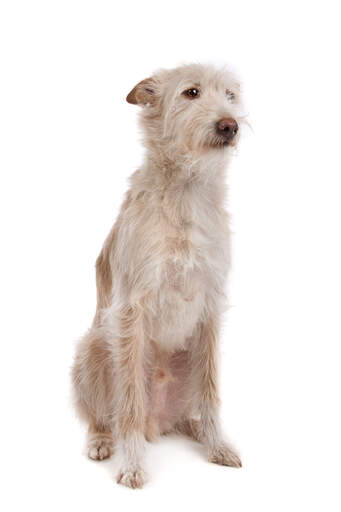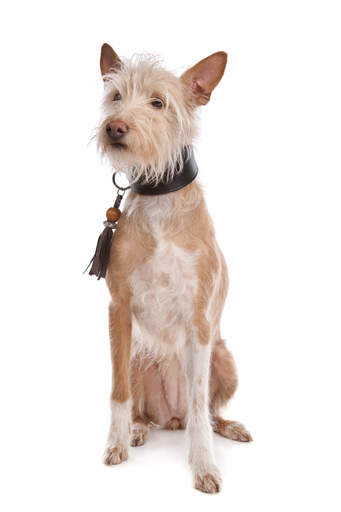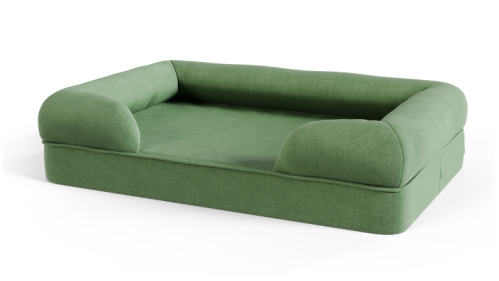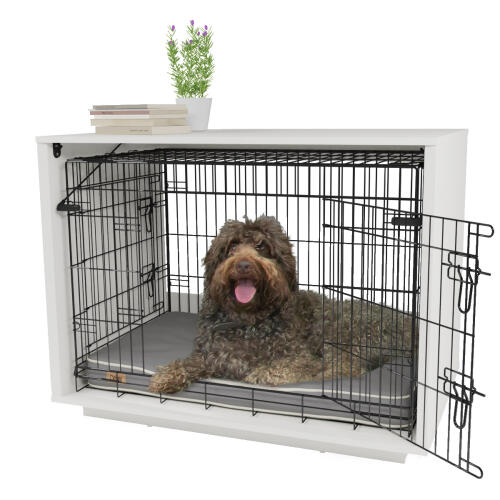Portuguese Podengo Dogs



History
The Portuguese Podengo comes in 3 sizes, small, medium and large, with two coat types; smooth and wire haired. The smooth coated variety dates back to the 5th century, with the wire haired a 20th century addition as a result of cross breeding. Podengos were used to hunt game; the smaller to seek out rabbits and the medium/large for deer and wild boar. They would work in packs or alone, track and bring down the prey or flush it out for the hunter to shoot. The Podengo is classed as a sighthound. They also make good ratters and were kept on Portuguese ships for this purpose. They are nicked named the Portuguese Rabbit Dog.
Behaviour
Brave, attentive and loving best describes the Podengo. They are wonderful with children, other pets and dogs as long as they are socialised from a young age and attend puppy classes to learn manners. They are sweet natured dogs who will happily play with children and tend not to be too rough, although play sessions should always be supervised. They are used a watch dogs in Portugal and will bark when someone approaches the door. Generally shy with strangers at first, until they get to know them. They are affectionate towards their family and like somewhere warm and cosy to sleep. Getting them to meet as many new people as possible when they are young will prevent them being too shy.
The Podengo needs a kind, consistent hand and will respond well to training. They are clever but can be sensitive to harsh commands. Food based training, positive reinforcement and affection go a long way to help train them. Their hunting instinct is strong, so using play to train they might also work. Once recall is taught, they can be allowed off lead and they will wander, but will always keep an eye on you and check where you are; often turning round and coming back to you to hurry you along! Activities such as agility are well suited to them, they have lots of energy and a desire to please you. Lure coursing and rally competitions are also suitable.
With a medium - high exercise need, they will require at least an hours walk a day, plus play sessions. This breed is renowned for jumping and can jump a 5ft fence. They also like to dig, so steps should be taken to prevent them digging out of a garden. A Podengo will happily jog along side you and will love a long walk/hike across rough terrain. They cope well with high temperatures.
The coat of both smooth and wire haired animals need a regular brush to keep it looking good and to remove dead hair. They are quite low maintenance.
With little intervention from the outside world, they suffer few health related issues, but Epilepsy is sometimes seen.
Temperament
Portugese Podengos have a lively and affectionate temperament. They are very loving of their families and their alert nature makes them good watchdogs. They are good with children and other animals (particularly if raised with them from a puppy) which means they can fit into many different familes. They do require a decent amount of exercise and training daily to prevent them being bored at home. Socialise them early with a wide variety of dogs and house guests so they can grow into confident and obedient dogs.
Health Problems
Health problems that may affect Portugese Podengos include Legg–Calvé–Perthes disease (degeneration of the femoral head which can lead to lameness and joint swelling) and luxating patella (dislocation of the kneecap).
Breed Details
- Status: Rare
- Life Expectancy: 15 - 17 years
- Weight: 4 - 6 kg
- Rare: No
- Coat: Short
- Grooming Requirements: Once a week
- Town or Country: Either
- Minimum Home Size: Small House
- Minimum Garden Size: Small to Medium Garden
- Breed Type: Hound
- Size: Small
- Energy Level: Medium







